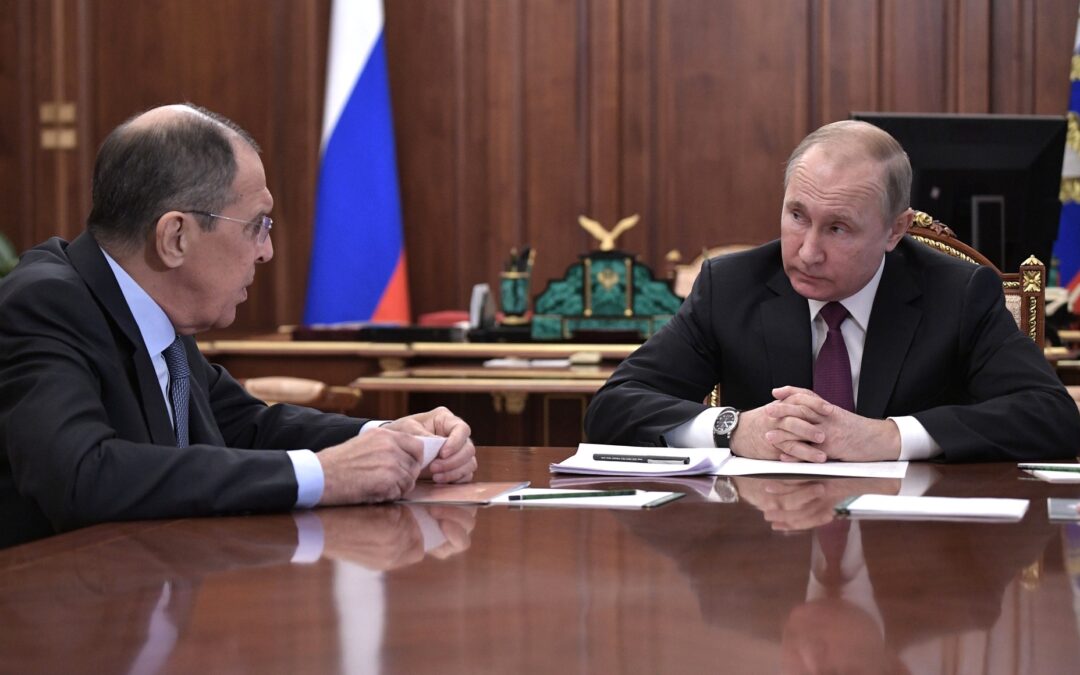Russia has ordered the closure of the Polish consulate in the city of Smolensk, saying that the decision was made due to “unfriendly, anti-Russian actions” by Poland. Warsaw has described the decision as “incomprehensible” and promised to take equivalent action in response.
In a legal act published today, the Russian government ordered the consulate’s closure. The Smolensk facility is one of four Polish consulates in Russia, in addition to the embassy in Moscow.
In a statement issued to the Interfax news agency, the Russian government said that the decision had been made “as a result of the unfriendly actions of the Polish government, which are of an anti-Russian nature”. It pointed to the “illegal seizure of Russian diplomatic property on Polish territory”.
Warsaw has seized a building used by the Russian embassy as a high school for children of Russian diplomats.
The decision was met with anger from the Kremlin and threats of "harsh" consequenceshttps://t.co/OBpqTL84VB
— Notes from Poland 🇵🇱 (@notesfrompoland) May 2, 2023
In May this year, local authorities in Warsaw seized a building used by the Russian embassy as a school for the children of diplomats. The Russians had refused to vacate the premises despite a 2016 court order requiring them to do so.
Last year, Warsaw also took control of a former Russian diplomatic compound that Moscow had also refused to vacate in violation of a court order. Similar action was taken against a property that the Russian embassy had been failing to pay rent for. All those moves were condemned by Moscow.
In its statement today, the Russian government said that closing down the Smolensk consulate “allows the restoration of the parity of the consular offices of Russia in Poland and Poland in Russia”.
Soon after, Poland’s foreign ministry released a statement confirming that the Polish ambassador in Moscow had been informed by Russia that consent for the operation of the Smolensk consulate was being withdrawn. It will be closed down on 31 August 2023.
Oświadczenie MSZ ws. zamknięcia Agencji Konsularnej RP w Smoleńsku ⤵️ https://t.co/oIZ7k3KlRC
— Ministerstwo Spraw Zagranicznych RP 🇵🇱 (@MSZ_RP) July 14, 2023
“The decision is…another unfriendly and incomprehensible act aimed at preventing the functioning of Polish diplomatic missions and Polish consular posts,” wrote the Polish foreign ministry. “Poland reserves the right to take appropriate action in response.”
The ministry also claimed that the decision was related to Russia’s efforts to “falsify history and deny responsibility for crimes committed by the Russian state”.
That is because Smolensk is the site of the 2010 air disaster that killed Polish President Lech Kaczyński and dozens of other senior figures, as well as being near to the locations in which the Katyn massacre of 22,000 Polish military officers by the Soviets took place in 1940.
Poland has protested against the removal of Polish flags from two sites in Russia where thousands of Polish officers murdered by the Soviets in WWII are buried https://t.co/ApKF9Jz2Q4
— Notes from Poland 🇵🇱 (@notesfrompoland) June 27, 2022
The Polish consulate in Smolensk was involved in supervision of the Smolensk crash site and of the Polish war cemetery in Katyn. Both tragedies have been sources of tension between Warsaw and Moscow.
For decades, the Soviets denied responsibility for the Katyn massacres, and in recent years the Russian authorities have also promoted a revisionist narrative of the crime. Meanwhile, Poland’s ruling party has long claimed that the Smolensk crash was deliberately caused by Russia.
In response to today’s decision, Poland’s prime minister, Mateusz Morawiecki, announced that “if Russia starts to liquidate our [diplomatic] posts, we will also respond in an equivalent manner on our side”.
A plaque commemorating 6,300 Poles murdered by the Soviets during the 1940 Katyn massacre has been removed in the Russian city of Tver.
Local prosecutors recently declared that it "does not reflect the truth", part of a growing revisionist trend in Russia https://t.co/ETY1DNBu7k
— Notes from Poland 🇵🇱 (@notesfrompoland) May 7, 2020
Main image credit: kremlin.ru/Wikimedia Commons (under CC BY 4.0)

Daniel Tilles is editor-in-chief of Notes from Poland. He has written on Polish affairs for a wide range of publications, including Foreign Policy, POLITICO Europe, EUobserver and Dziennik Gazeta Prawna.




















